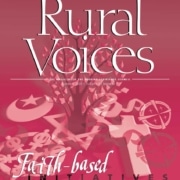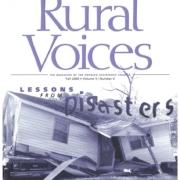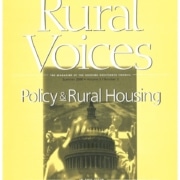The Fall 2000 issue of Rural Voices addresses some of what can be learned from recent major disasters.
Natural disasters remind us how little control we have over our world -homes and lives can be wiped out in seconds. One year ago, Hurricanes Dennis and Floyd devastated large sections of the eastern U.S., with heavy rains and flooding damaging communities far inland. This summer, news stories have focused on fires in the west. Less dramatic disasters happen all the time -a tornado strikes a single town or a river floods in one county.
The Fall 2000 issue of Rural Voices addresses some of what can be learned from recent major disasters. Preparatory steps to guard against damage are summarized by staff of the Federal Emergency Management Agency’s Project Impact, which helps to make communities disaster resistant. An experienced architect from Texas presents specific design and construction tips for wind resistance. A Kentucky state official describes her agency’s role in recovering from serious flooding. A Minnesota rural infrastructure expert suggests elements of a manual to guide emergency procedures. And a North Carolina advocate examines the challenges and successes of that state’s ongoing efforts to recover from last year’s hurricanes.
A great deal of additional information is available for rural communities to prepare for and recover from these kinds of disas-ters and others. Most of the articles in this issue suggest sources of further advice, and most of it is available free.
A key theme running through all these articles is the importance of advance planning and preparation. Rural communities can exert some control after all, either to reduce damage or to hasten recovery after a disaster.



